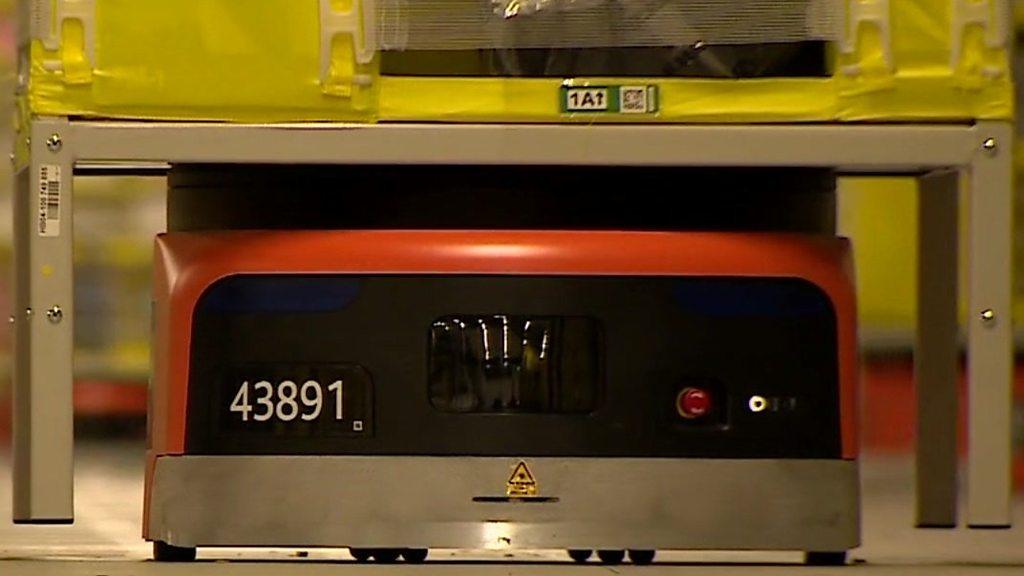Amazon warehouse robots 'increase staff injuries'
- Published
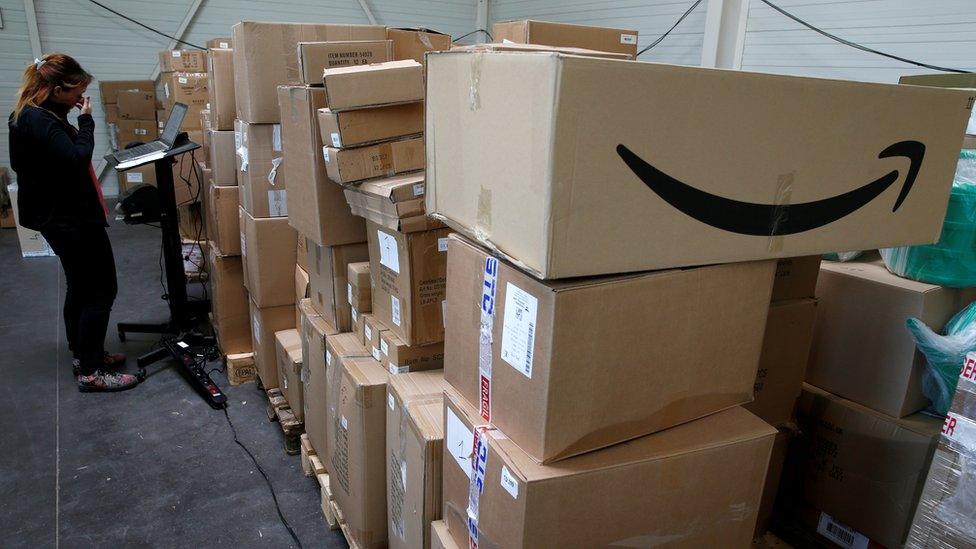
Amazon has defended its safety record
Amazon's use of robots in its warehouses has led to more injuries for human workers, an investigation says.
The Center for Investigative Reporting said it had acquired internal records for 150 warehouses over four years.
At the most common kind of Amazon "fulfilment centre", serious injuries are 50% higher for those that have robots than those without, it says.
Amazon said its numbers were high because it encouraged the reporting of even minor incidents.
The report from journalist Will Evans, external was published on the centre's own news website.
It accuses the giant online retailer of "bald misrepresentations the company has deployed to hide its growing safety crisis".
It said Amazon officials had "profoundly misled the public and lawmakers" over its safety record.
The company, however, said: "We strongly refute the claims that we've misled anyone.
"The reporter is misinterpreting data, and the very internal documents he claims to have obtained ultimately illustrate one thing - we have a deep focus on the safety of our teams."
Injuries rise with the robots
Amazon first introduced robots into its warehouses after acquiring a robotics manufacturer in 2012.
But workers speaking to Reveal said the robots ferrying items through the warehouse meant they were now confined to workstations, standing still and repeating monotonous tasks.
On top of that, the robots were much more efficient - meaning that productivity expectations for human workers had increased too. Pickers at the warehouse, for example, said they had seen their expected number of items to handle grow from 100 to 400 an hour.
Instead of humans walking miles to pick goods, these robots take the shelves to the pickers
Internal documents show that facilities with the robots have injury rates about 50% higher than those without, the report says.
Last year alone, there were 14,000 "serious" injuries - requiring days off or job restrictions - and the overall injury rate was almost double the industry standard, it says.
A few warehouses reported as many as five times as many injuries as the industry average, measured in serious injuries per 100 workers.
Amazon said that the injury rate in the reports used by the US Occupational Safety and Health Administration was not a metric for "serious injury".
The "Dart" rate - "days away, restricted or transferred"- was higher for Amazon because it "encourages someone with any type of injury, for example a small strain or sprain, to stay away from work until they're better", the company said.
It did not, however, directly respond to the claim that the number of these incidents was higher in robotics-equipped facilities than those without.
'Misleading' claims
The report also says Amazon's public statements are misleading, based on its discoveries - something Amazon fiercely denies.
The company says improving safety is a key part of the robot's purpose, external, alongside improving efficiency.
Jeff Wilke, Amazon's chief executive of consumer business, argued in 2019 that robotics had a beneficial impact on safety.
Allow X content?
This article contains content provided by X. We ask for your permission before anything is loaded, as they may be using cookies and other technologies. You may want to read X’s cookie policy, external and privacy policy, external before accepting. To view this content choose ‘accept and continue’.
"Making jobs safer by implementing robotics is just a win for everybody - making jobs more interesting, allowing people to take advantage of their innate human creativity instead of doing rote things over and over again," he said.
Reveal's analysis of the data it received found that 2019's "Prime Day" sales period was "the year's most dangerous week for injuries at Amazon fulfilment centres, with nearly 400 serious injuries recorded across the country".
But Amazon said that was based on a misunderstanding because there were more workers employed at peak periods, and in fact the number of injuries per worker remained stable or even declined during those periods.
'Millions spent on safety'
Amazon has long faced a public relations battle over how its treats its employees.
In the UK, the GMB union alleged that hundreds of Amazon workers had sufferd serious injury or narrowly avoided an accident. Data shows that the number of injuries reported in the UK have increased in recent years - but so too have the number of warehouses.
Workers have staged strikes over the "Prime Day" workload or, more recently, coronavirus safety measures.
The company says it has has spent some $55m on safety improvements, external in its warehouses over the past two years.
Responding to the allegations in the Reveal report, Amazon said it was constantly learning, and improving its safety procedures.
"We continue to see improvements in injury prevention and reduction through programmes focused on improved ergonomics, delivering guided physical and wellness exercises, providing mechanical workstation assistance equipment, improving workstation setup and design, forklift telematics, and forklift guardrails to separate equipment from pedestrians - to name a few," it said.
- Published2 September 2020
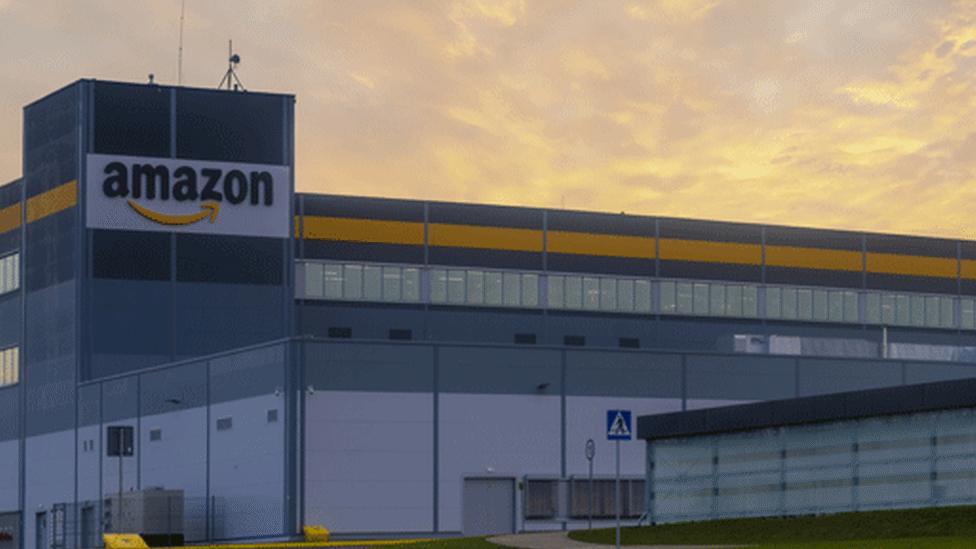
- Published19 April 2020
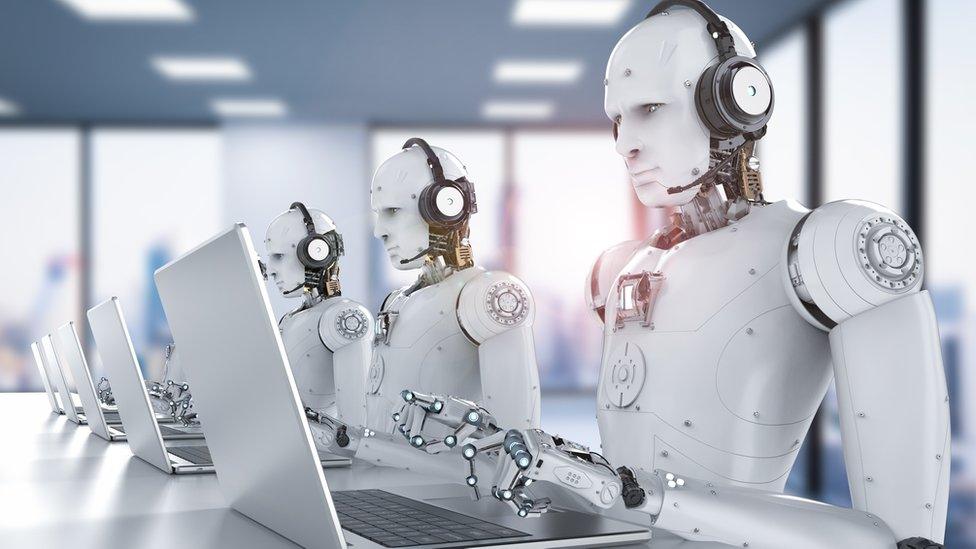
- Published20 December 2018
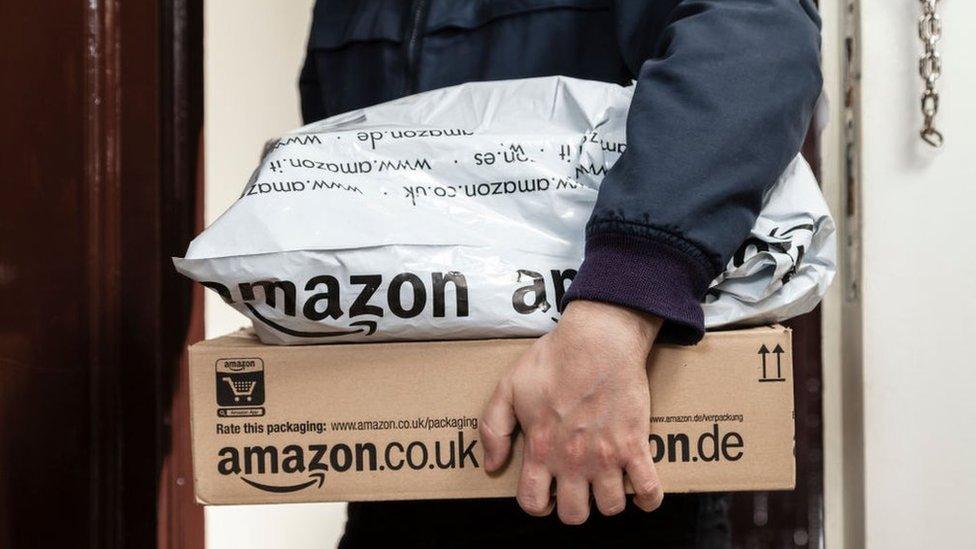
- Published18 August 2016
